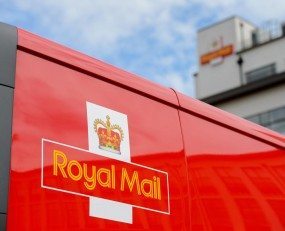
Royal Mail has reported a substantial shift in its business from letters to parcels during the first five months of fiscal 2020. The strong growth in parcel volumes is being driven by B2C and e-commerce. Whilst this has driven better than expected revenues, its legacy in letters has held back operational changes needed to adapt its business to a market that has fewer letters and more parcels. As a result, the mix shift from handling more parcels and fewer letters increased costs in the period by £85m.
Additionally, costs related to COVID-19 (elevated absence, social distancing, additional protective equipment and other costs) were £75m in the first five months.
As previously announced, Royal Mail has taken action to speed up decision-making and improve its financial position. It hopes that its management restructure will deliver a £130m cost-benefit from FY2021-22, and it is also targeting flat non-people costs in FY2021-22 vs. FY2019-20, excluding depreciation, through the delivery of £200m of savings.
These changes have also helped Royal Mail to focus capital expenditure on delivering key projects and delivering them more quickly, whilst also reducing CAPEX spend by around £250m over the next two years.
In both GLS and Royal Mail, parcel revenues are significantly ahead of expectations pre-COVID, but while this has increased profits in GLS, it has not halted the long-term decline in Royal Mail profitability. The group expects Royal Mail to make a material loss this financial year 2020-21 and will not become profitable without substantial business change.
While the current COVID-19 crisis has brought both additional challenges and extra costs, the market changes accelerated by it have created opportunities. Royal Mail claims GLS is well-positioned to achieve further success in its markets and has continued to benefit from the growth in B2C parcel volumes, in addition to its strong position in B2B parcels, with both volumes and revenues up by around 19%. Revenues have increased significantly in GLS companies which already had a relatively high proportion of B2C volumes pre-COVID-19, for example, Spain and Europe East. Performance has also been better in the previously underperforming “focus countries” France, Spain and the US.
Actions taken to mitigate associated additional costs of B2C, including increased use of digital and route optimisation tools to improve last-mile efficiency have been effective to date.
Source: Royal Mail